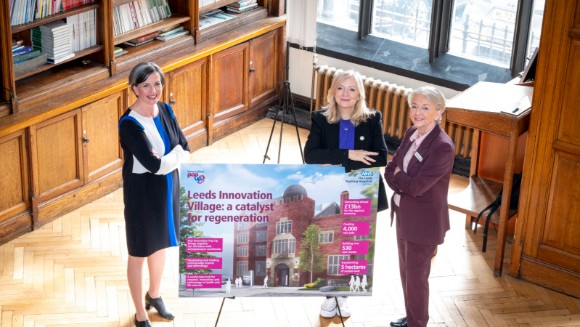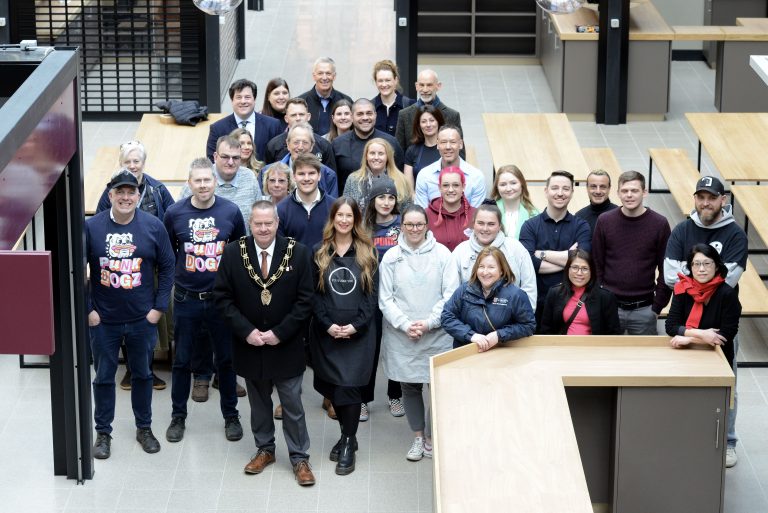City Council expects to quit lease on Thwaite Watermill to save £750k
Leeds-based Answer Digital acquires provider of specialist healthcare digital systems
Hull and Humber Chamber appoints new President
Lincolnshire business lands £300k grant to develop crypto platform
North Yorkshire urban improvement plans move to next stage
If the West Yorkshire Combined Authority approves the full business cases at its meeting on Thursday, multi-million pound schemes to transform the centres of Harrogate, Selby and Skipton can go ahead.
Approval would start the process of appointing a contractor for the year-long project, which is expected to be in the summer, with work on the ground starting in September.
The Transforming Cities Fund projects, which are due to cost a total of £44.6 million to enhance access to transport hubs in all three towns, have already been approved by the Department for Transport and North Yorkshire Council.
Executive member for highways and transport, Cllr Keane Duncan, said: “We welcome the Combined Authority’s proposal to support the transformative, revised schemes in Harrogate, Selby and Skipton.
“The plans have been revised to ensure we focus on the elements which gathered the most public support.
“After cross-party discussions, there has been significant change to the schemes, particularly in Harrogate, with the most controversial elements no longer moving forward.
“We will soon begin preparatory work ahead of construction starting. This is a very exciting time for the regeneration of all three town centres.”
The £12.1 million Harrogate scheme reflects the revised focus agreed by the council’s executive in November.
It will see pedestrian improvements along Station Parade, including raised crossings and signal junction improvements, a bus lane from Bower Road into the bus station and a south-bound segregated cycle lane. Station Parade will remain two lanes and there will be no changes to James Street.
The scheme will also see public realm improvements to One Arch and Station Square, and new cycle parking at the railway station.
Subject to Combined Authority approval, construction is due to start in September and will take one year.
The revised £25 million Selby scheme is focussed on improving pedestrian and cycling access along Station Road and Ousegate, the new station access and car park to the east, along with improvements to the station building and the new plaza entrance into Selby Park.
Other elements, including the connection to Portholme Road, junction alterations at The Crescent and wider landscaping plans for Selby Park, would be brought forward as subsequent phases.
Construction is due to start at the end of September, with completion due for late autumn 2026.
The revised £7.2 million Skipton project will deliver the canal path connection from the railway station to the Cattle Mart and college, and improve the walking route to the bus station, along Black Walk, including the replacement of Gallows Bridge.
Improvements to the railway station car park would be brought forward at a later date.
We hope to appoint a contractor in July, with construction starting in September, lasting until June next year.
West Yorkshire’s £80m investment zone promises up to 2,500 new jobs
- The Digital Health Enterprise Zone at the University of Bradford, which supports business growth, knowledge and skills development by connecting academics, researchers and health and social care partners. It also contributes to the training of future healthcare professionals, advancing research and commercial opportunities through its dedicated simulation space, The Technology House. Its aim is to work with other universities, local government and wider partners to make West Yorkshire the place for health tech innovation.
- A National Health Innovation Campus at the University of Huddersfield, where the university is investing over £250 million to develop a state-of-the-art campus, focused on specialist clinical teaching and research to tackle health inequalities.
- A HealthTech Innovation Hub in Leeds – a flagship project of the investment zone which will see the development of the first phase of Leeds Teaching Hospitals NHS Trust’s 1 million square foot “Leeds Innovation Village” on the site of Leeds General Infirmary. This will involve the construction of the Trust’s new, world-leading, state of the art digital hospital at the Old Medical School.
Traders gather for first time ahead of Lincoln Market re-opening
City of Lincoln Council’s refurbished Cornhill Market will host an official opening celebration event on Friday 17 May, exactly 86 years after it first opened in 1938.
- The opening up of the blind arches on the north and east elevations
- A new mezzanine floor overlooking the market hall, a space to enjoy food and drink
- Replacement roofing and glazed lantern
- Demolition of the butcher’s corridor to the south of the building and the construction of a new two storey extension to accommodate a new restaurant with a roof terrace
- New heating and lighting in the building
- Freestanding stalls in the interior space of a contemporary, minimal design for local businesses to promote local produce and an area within the centre of the Market Hall to accommodate seating for the associated food outlets within the stalls
- Unisex toilets including disabled and baby changing facilities
- Repaving and enhancing external areas in City Square have also been completed, to encourage more visitors to use the space in events and activities
- Corner Farm: Catering service, providing satisfying meals such as jacket potatoes and salads
- Stokes: Award winning family business in sourcing, roasting, blending & supplying coffee
- Bella Di Casa: Authentic, homemade Italian ice cream (gelato)
- Tick King: Specialises in watch repairs and watch servicing
- Bradford Plants: A Lincolnshire based husband and wife duo selling a variety of plants
- Oatz and Co: Sweet treats baked with oats, including vegan and gluten free options
- Fabrick Tattoos Embroidery: Alternative embroidery, crafts and sustainable clothing
- Bubble Kiss: Exciting bubble teas and mouthwatering bubble waffles to accompany
- Lincs Mo Mo: Pop up food vendor specialising in tasty dumplings called mo mos
- The Cookie People: Cookies, cookie dough and drinks to satisfy any sweet tooth












